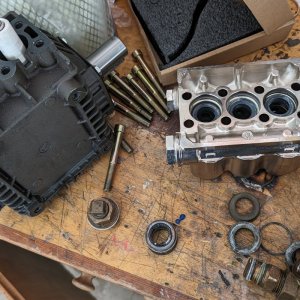Larry Cobb
Member
Some interesting industry information about solvent-based grout & stone sealers.
One Quote I liked:

http://www.tilecleaning.org/drytreat-st ... review.htm
Larry
P.S. Now you can save some money on quality grout and stone sealing !
http://www3.cobbcarpet.com/zen3/index.php?main_page=product_info&cPath=78&products_id=1215
One Quote I liked:
Then, this testing on Mikey's premium-priced Dry Treat Sealer:When sealing stone tiles it is generally recommended to use a solvent based sealer,
since stone tiles are more dense and the better absorption of solvent based sealers will make a difference in how well a stone tile is sealed.
Worcestershire Sauce & Red Wine on top, Mustard & Coffee Stains @ Bottom:It is also the most expensive typically running $80-100 per quart. It is sold in specialized tile and stone stores and can only be sold in quarts due to laws covering high VOC products.
In our testing the Drytreat Stainproof did not perform any better or any worse then the other mid range sealers. There was still obvious staining from the mustard and a slight stain from the dirty motor oil. The high price tag combined with high VOC levels do not seem to justify using this sealer.
http://www.tilecleaning.org/drytreat-st ... review.htm
Larry
P.S. Now you can save some money on quality grout and stone sealing !
http://www3.cobbcarpet.com/zen3/index.php?main_page=product_info&cPath=78&products_id=1215

